Coronavirus: self-isolating at university
Coronavirus seems to be all anyone's talking about right now, but you won't be alone in wondering what you actually need to do to self-isolate. Worry not as this guide explains all.
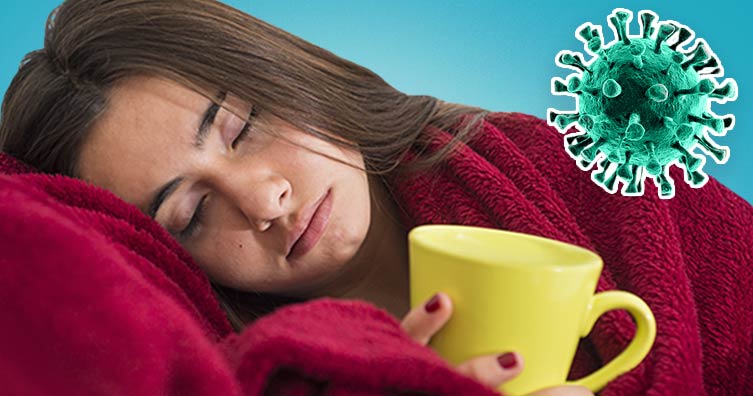
Credit: sezer66, creativeneko – Shutterstock
With so much info about COVID-19 (a type of coronavirus) to take in at the moment, it can be hard to know what steps to be following to try to prevent catching and passing on the illness.
Here, we'll explain how you can reduce your chances of getting COVID-19, when you need to self-isolate and how to approach self-isolation when living in shared accommodation.
What's in this guide?
What is coronavirus?
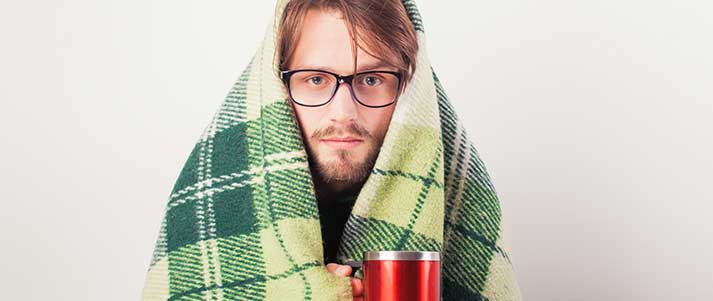
Credit: Paranamir – Shutterstock
Coronaviruses are a family of viruses that can cause illness in animals or humans – COVID-19 is a recently-discovered coronavirus, but the previous ones have, on the whole, appeared more like colds.
COVID-19, which means Coronavirus Disease 2019, was declared as a pandemic by the World Health Organisation (WHO) on Wednesday 11th March 2020. This was because the spread of the disease around the world exceeded expectations for a new virus, for which people don't have immunity.
It's believed that it usually takes up to 14 days for symptoms to start after you catch the virus (this is known as the 'incubation period').
Common symptoms of coronavirus
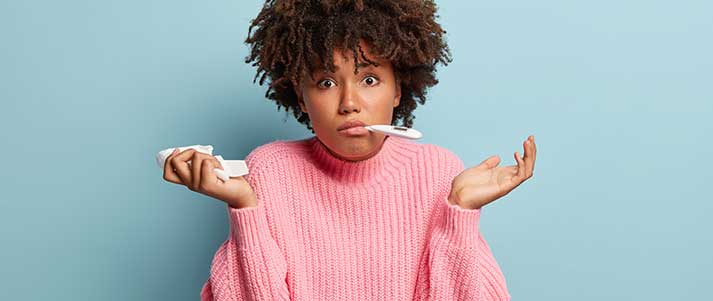
Credit: WAYHOME studio – Shutterstock
According to the NHS, these are the main symptoms of COVID-19 to look out for:
- A high temperature
- A new, continuous cough
- A loss/change to your sense of taste and smell.
If you experience any of these symptoms, you will need to get a coronavirus test and start self-isolating. We explain the process in more detail below.
A minority of people with coronavirus become seriously ill and develop difficulty breathing. If you do experience serious symptoms, visit NHS 111 online, call NHS 111 or, if it's an emergency, call 999.
However, COVID-19 symptoms usually begin gradually and stay mild. And remember that some people with the virus are asymptomatic and don't experience any symptoms at all.
Whether you have symptoms or not, it's important to still be careful, follow social distancing measures and regularly wash your hands.
Test and Trace systems in the UK

Credit: Sven Hansche - Shutterstock
The Test and Trace systems in each part of the UK aim to quickly test potential cases of COVID-19, identify who has recently been in close contact with people who test positive for coronavirus and encourage any potential cases to self-isolate.
'Close contact' refers to:
- Being face-to-face with someone who is less than one metre away (even if you were wearing a face mask)
- Being less than two metres away from someone for over 15 minutes
- Travelling in a small vehicle with someone (e.g. a car), or near somebody on a plane.
The advice below is specifically about the NHS Test and Trace service in England, but it's similar to the processes in the rest of the UK. To find out more about how the system works where you live, have a look at the guidance on the government sites for Northern Ireland, Scotland and Wales.
What to do if you have coronavirus symptoms
If you develop symptoms of coronavirus, here are the steps you should take to follow the Test and Trace system:
- When you start experiencing symptoms of COVID-19 (i.e. a new and continuous cough, a high temperature and/or a loss or change to your sense of smell or taste), immediately start self-isolating, along with your household.
- As well as self-isolating, order a test to find out if you have the virus.
- If you test positive for coronavirus, you'll be alerted by the NHS Test and Trace service by a text, email or phone call, and you'll need to let them know who you've been in recent close contact with.
- The Test and Trace service will then contact people that you've been in close contact with who might need to self-isolate.
Note: If you're tested for coronavirus due to experiencing symptoms and the results come back negative, you and your household can stop self-isolating (but ONLY as long as you haven't been told separately by the NHS to self-isolate due to being in close contact with someone with the virus).
However, if you're unwell with the flu or a different virus, it's still advisable to stay away from others until you're feeling better.
What to do if you've been in contact with someone who has coronavirus
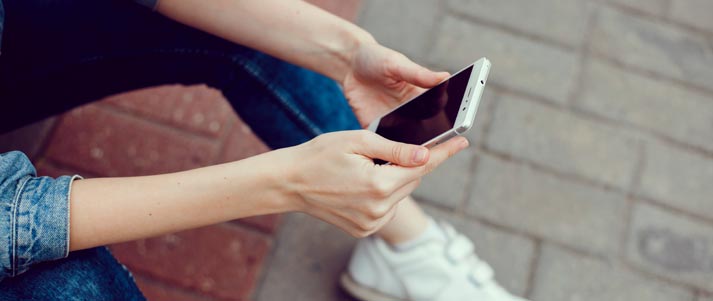
Credit: sergey causelove – Shutterstock
If somebody that you've been in recent contact with tests positive for COVID-19, here are the Test and Trace steps to follow:
- You will be alerted by the NHS Test and Trace service by a text, email, phone call or as an alert on the NHS COVID-19 app to tell you to self-isolate.
- You should then log on to the NHS Test and Trace website.
- You'll need to start self-isolating for 10 days from when you were in contact with that person. Your household will only need to self-isolate with you if you have COVID-19 symptoms, but they should still be careful to follow social distancing measures, regularly wash their hands and avoid contact with you.
- If you then develop symptoms, you will need to order a test and follow the self-isolation measures along with your household.
- Following a positive test result, you'll be contacted by the NHS Test and Trace service and will need to share who you've been in close contact with and self-isolate for 10 days from the start of your symptoms. Or, if you have a negative test result, you'll need to continue self-isolating for the remainder of the 10 days from when you were in contact with someone with coronavirus.
When should you self-isolate?
As soon as you experience a new and continuous cough, high temperature and/or loss or change to your sense of smell or taste, you should start self-isolating. You'll need to order a test, and if it's positive, you'll need to self-isolate for 10 days from when your symptoms began.
If you don't have symptoms but still test positive, you'll need to self-isolate for 10 days from when you had the test. Or, if you only start to experience symptoms after your test, you should start self-isolating for 10 more days from the start of your symptoms.
If you've been in close contact with someone during the 48 hours before they developed symptoms or tested positive (if they don't have symptoms), you will need to self-isolate for 10 days from when you were last in contact with them (more on this below).
As an overview, here are the key reasons you might need to self-isolate:
- You have symptoms of COVID-19
- You're waiting for a coronavirus test result
- You've tested positive for the virus
- You live with someone who has symptoms, is waiting for a test result or has tested positive
- You're in a support bubble with someone who has symptoms, is waiting for a test result or has tested positive
- You're told to do so by NHS Test and Trace or the NHS COVID-19 app.
For further info, have a look at the NHS website or use NHS 111 online.
Why is it important to self-isolate?
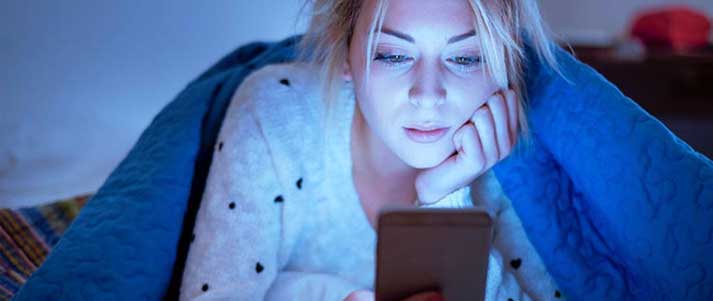
Credit: tommaso79 – Shutterstock
A major reason why it's important to self-isolate if you have COVID-19 is that there's a risk you could pass it on to others as it spreads quickly.
While you may have no problem fighting off the illness, for others, it can be serious.
So if you experience the symptoms of COVID-19, you can help to prevent the spread of the disease as much as possible by self-isolating.
How long should you self-isolate for?
Self-isolating due to having coronavirus
If, after 10 days from the start of your symptoms or positive coronavirus test, you have a normal temperature and you feel better, you should be fine to stop self-isolating, but you will still need to keep following the government's social distancing measures.
The NHS advises that you don't need to continue self-isolating after 10 days if you just have a cough or changes to your sense of taste or smell as these symptoms can last for weeks after the infection's gone.
However, you should keep self-isolating after the 10 days if you have any of the following symptoms:
- A high temperature or feeling hot and shivery
- Sneezing or a runny nose
- Feeling/being sick*
- Diarrhoea*.
* If you have either of these symptoms, stay at home until 48 hours after they've stopped.
Self-isolating due to being in contact with someone with coronavirus
After being in contact with someone with COVID-19 symptoms, you will need to stay at home for 10 days from when you were last in contact with them (or from the start of their symptoms if you live with them).
When someone develops symptoms after testing positive, the 10 days restarts from when the symptoms begin.
If more than one person in your house or support bubble has symptoms, your 10 days of self-isolation follow when the first person started having symptoms.
And, if you're self-isolating for 10 days because your housemate or somebody in your support bubble has symptoms, and you develop symptoms during this time, you will then need to get a test.
After a positive test result, self-isolate for a further 10 days from the start of your symptoms (even if that means you're self-isolating for over 10 days altogether). Or, if you have a negative test result, self-isolate for the remainder of the 10 days from when you first started.
There are a number of reasons you may need to get advice from NHS 111 or a GP if you coronavirus, including if at any point you feel you can't take care of yourself at home, you feel breathless and it's getting worse or you feel very weak, achy and tired. If you need advice visit NHS 111 online, call NHS 111 or call your GP surgery. If it's an emergency, call 999.
You can see more reasons why you may need to get advice from NHS 111 or a GP, or why you may need to go to A&E immediately or call 999 on the NHS website.
How to self-isolate in a shared house

Credit: Manchesterphotos - Wikimedia
When self-isolating in shared accommodation, it's advisable to DO the following things:
- Stay in your room on your own as much as you can and keep your door closed
- Keep your windows open
- Ask others to bring you things like food and medicines, but avoid direct contact with them (anything you're brought should be left outside your door for you to collect)
- Avoid using shared spaces at the same time as others – you could consider wearing a face covering in shared spaces
- If possible, use a separate bathroom, or if you only have a shared bathroom, clean it after each use
- Regularly wash your hands for at least 20 seconds, using soap and water
- Drink lots of water and take paracetamol to help with your symptoms.
And, you should AVOID the following during self-isolation:
- Having visitors
- Sharing towels with others
- Leaving the house, including for exercise, work and classes.
Self-isolating in student accommodation

Credit: Objective Productions
Of course, a lot of the above things are easier said than done when living in a student house with several others. But, it's super important to follow the NHS guidelines as much as you can if you fit the description of those being asked to self-isolate.
The government suggests that you avoid using shared spaces as much as possible, including kitchens, bathrooms and living rooms. Try to keep these areas well ventilated, and consider wearing a face covering.
If you need to cook, you should only use the kitchen when no one else is there. It's a good idea to then use disinfecting cleaning products to clean the surfaces you've touched.
You should eat your meals in your room. The best way to clean your dishes is with a dishwasher but, if you don't have one, you can use washing up liquid and warm water, before drying them with a separate tea towel to the rest of the house.
For shared toilets and bathrooms, try to clean them after each use. Again, it's also worth using a separate towel to your other housemates to dry your hands.
17 things to do during self-isolation

Credit: Nicolas Maderna – Shutterstock
These are the best things to do while self-isolating at home to make money, keep active and stay as positive as you can:
- Do free workouts at home
- Try a quick way to make money online
- Take a free online course to gain a qualification
- Host a digital dinner party via Zoom
- Get paid to watch videos
- Learn a new language
- Chat with someone new on a dating app
- Find your next favourite book
- Start a new hobby
- Complete paid online surveys
- Become a product tester
- Start writing a blog (you could even blog about your experience of self-isolating!)
- Try a new recipe
- Pamper yourself with homemade beauty treatments
- Catch up on your favourite boxsets
- Shop for bargains online
- Most importantly, take care and look after your mental health.
Extra ways to help prevent the spread of coronavirus
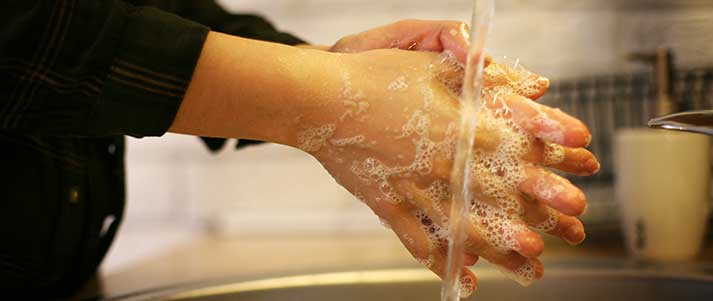
Credit: Liderina – Shutterstock
COVID-19 is often spread by people coughing, but it's not just those nearby who can catch the disease this way.
If someone with the virus coughs or exhales, small droplets from their nose or mouth can, for example, be inhaled by others. The droplets could also land on surfaces or objects – if someone then touches the infected areas, they may then catch COVID-19 themselves when they then touch their eyes, nose or mouth.
Because of this, you need to cover your mouth and nose each time you cough and sneeze and wash your hands.
As well as following the government's coronavirus restrictions, a key way to prevent the spread of coronavirus infection is by regularly washing your hands for at least 20 seconds with warm soap and water.
Alcohol-based hand sanitisers are also good if you aren't able to quickly wash your hands.
And, remember to wear a face covering when necessary.
Looking to make money from clinical trials? Our guide will tell you how...








